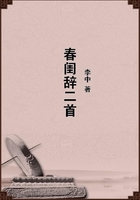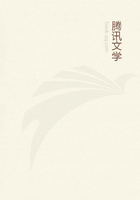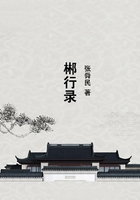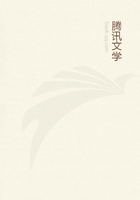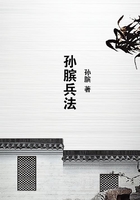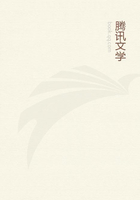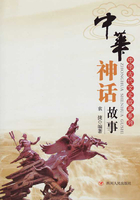(7) Mr. Arthur Helps, in one of his thoughtful books, published in 1845, made some observations on this point, which are not less applicable now. He there said: "it is a grievous thing to see literature made a vehicle for encouraging the enmity of class to class. Yet this, unhappily, is not unfrequent now. Some great man summed up the nature of French novels by calling them the Literature of Despair; the kind of writing that I deprecate may be called the Literature of Envy.... Such writers like to throw their influence, as they might say, into the weaker scale. But that is not the proper way of looking at the matter. I think, if they saw the ungenerous nature of their proceedings, that alone would stop them. They should recollect that literature may fawn upon the masses as well as the aristocracy; and in these days the temptation is in the former direction. But what is most grievous in this kind of writing is the mischief it may do to the working-people themselves. If you have their true welfare at heart, you will not only care for their being fed and clothed, but you will be anxious not to encourage unreasonable expectations in them--not to make them ungrateful or greedy-minded. Above all, you will be solicitous to preserve some self-reliance in them. You will be careful not to let them think that their condition can be wholly changed without exertion of their own. You would not desire to have it so changed. Once elevate your ideal of what you wish to happen amongst the labouring population, and you will not easily admit anything in your writings that may injure their moral or their mental character, even if you thought it might hasten some physical benefit for them. That is the way to make your genius most serviceable to mankind. Depend upon it, honest and bold things require to be said to the lower as well as the higher classes; and the former are in these times much less likely to have, such things addressed to them."-Claims of Labour, pp. 253-4.
(8) 'Memoirs of Colonel Hutchinson' (Bohn's Ed.), p. 32.
(9) At a public meeting held at Worcester, in 1867, in recognition of Sir J. Pakington's services as Chairman of Quarter Sessions for a period of twenty-four years, the following remarks, made by Sir John on the occasion, are just and valuable as they are modest:-"I am indebted for whatever measure of success I have attained in my public life, to a combination of moderate abilities, with honesty of intention, firmness of purpose, and steadiness of conduct. If I were to offer advice to any young man anxious to make himself useful in public life, I would sum up the results of my experience in three short rules--rules so simple that any man may understand them, and so easy that any man may act upon them.
My first rule would be--leave it to others to judge of what duties you are capable, and for what position you are fitted; but never refuse to give your services in whatever capacity it may be the opinion of others who are competent to judge that you may benefit your neighbours or your country. My second rule is--when you agree to undertake public duties, concentrate every energy and faculty in your possession with the determination to discharge those duties to the best of your ability. Lastly, I would counsel you that, in deciding on the line which you will take in public affairs, you should be guided in your decision by that which, after mature deliberation, you believe to be right, and not by that which, in the passing hour, may happen to be fashionable or popular."(10) The following illustration of one of his minute acts of kindness is given in his biography:- "He was one day taking a long country walk near Freshford, when he met a little girl, about five years old, sobbing over a broken bowl; she had dropped and broken it in bringing it back from the field to which she had taken her father's dinner in it, and she said she would be beaten on her return home for having broken it; when, with a sudden gleam of hope, she innocently looked up into his face, and said, 'But yee can mend it, can't ee?'
"My father explained that he could not mend the bowl, but the trouble he could, by the gift of a sixpence to buy another.
However, on opening his purse it was empty of silver, and he had to make amends by promising to meet his little friend in the same spot at the same hour next day, and to bring the sixpence with him, bidding her, meanwhile, tell her mother she had seen a gentleman who would bring her the money for the bowl next day.
The child, entirely trusting him, went on her way comforted. On his return home he found an invitation awaiting him to dine in Bath the following evening, to meet some one whom he specially wished to see. He hesitated for some little time, trying to calculate the possibility of giving the meeting to his little friend of the broken bowl and of still being in time for the dinner-party in Bath; but finding this could not be, he wrote to decline accepting the invitation on the plea of 'a pre-engagement,' saying to us, 'I cannot disappoint her, she trusted me so implicitly.'"(11) Miss Florence Nightingale has related the following incident as having occurred before Sebastopol:- "I remember a sergeant who, on picket, the rest of the picket killed and himself battered about the head, stumbled back to camp, and on his way picked up a wounded man and brought him in on his shoulders to the lines, where he fell down insensible. When, after many hours, he recovered his senses, I believe after trepanning, his first words were to ask after his comrade, 'Is he alive?' 'Comrade, indeed;yes, he's alive--it is the general.' At that moment the general, though badly wounded, appeared at the bedside. 'Oh, general, it's you, is it, I brought in? I'm so glad; I didn't know your honour.
But, ---, if I'd known it was you, I'd have saved you all the same.' This is the true soldier's spirit."In the same letter, Miss Nightingale says: "England, from her grand mercantile and commercial successes, has been called sordid;God knows she is not. The simple courage, the enduring patience, the good sense, the strength to suffer in silence--what nation shows more of this in war than is shown by her commonest soldier?
I have seen men dying of dysentery, but scorning to report themselves sick lest they should thereby throw more labour on their comrades, go down to the trenches and make the trenches their deathbed. There is nothing in history to compare with it....
Say what men will, there is something more truly Christian in the man who gives his time, his strength, his life, if need be, for something not himself--whether he call it his Queen, his country, or his colours--than in all the asceticism, the fasts, the humiliations, and confessions which have ever been made: and this spirit of giving one's life, without calling it a sacrifice, is found nowhere so truly as in England."(12) Mrs. Grote's 'Life of Ary Scheffer,' pp. 154-5.
(13) The sufferings of this noble woman, together with those of her unfortunate husband, were touchingly described in a letter afterwards addressed by her to a female friend, which was published some years ago at Haarlem, entitled, 'Gertrude von der Wart; or, Fidelity unto Death.' Mrs. Hemans wrote a poem of great pathos and beauty, commemorating the sad story in her 'Records of Woman.'

